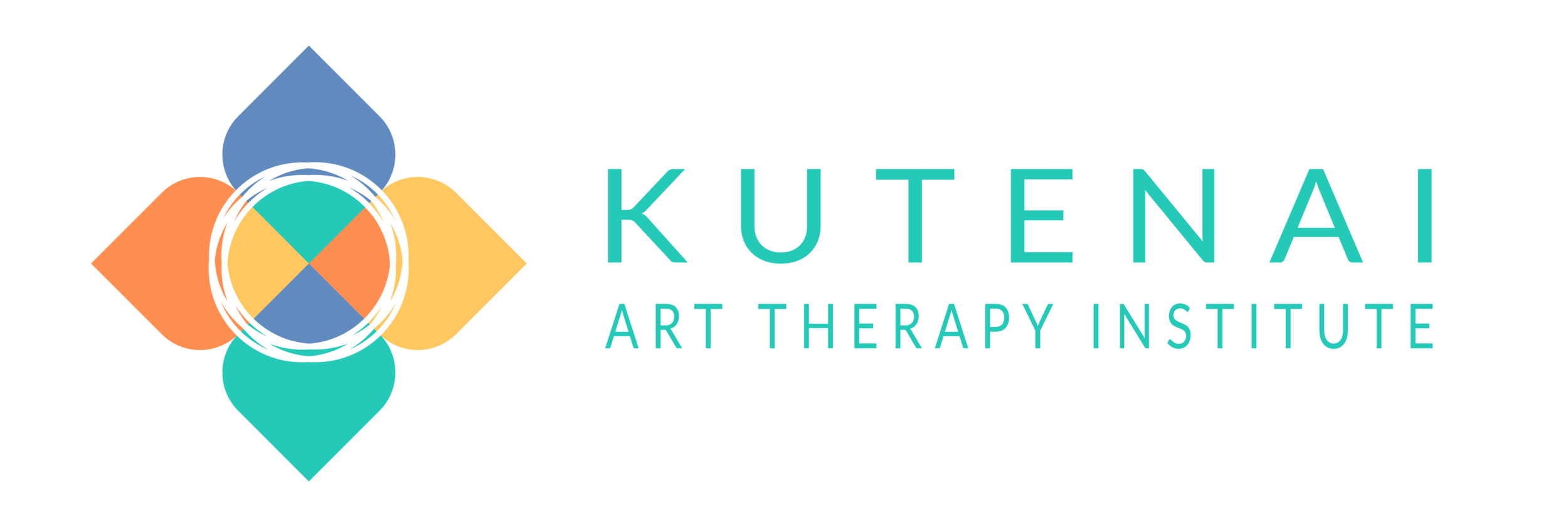Cultivating awareness, care, and respect for the land
At KATI, we teach and practice a relational, land-based approach to art therapy—one which attends to all our relationships, including each other, ourselves, our art, and all the sentient, natural world. We use the word “land” as it is traditionally used in Indigenous worldviews, as an encompassing term to refer to the earth, the water, the air, and all that live within these ecosystems. Land-based art therapy expands our awareness and creative response to the people we work with beyond self, family, society, and culture to include these larger ecological systems as the source and resource of both suffering and healing.
Students working on eco-art creation at Kokanee Park
Land-based art therapy has the potential to inspire hope, increase emotional resiliency, and facilitate individual and collective healing in the face of the environmental crisis that we are a part of. We believe that therapeutic approaches need to be responsive to the collective needs and concerns of our time.
Students at KATI are encouraged to cultivate a personal connection to nature and to engage in creative processes that relate to the natural world as a living being that needs our care and respect. This involves developing an awareness of how we relate and connect with the land, reflecting on experiences and beliefs that may have informed our way of being and thinking in relationship with the land and making conscious choices about how we want to develop our ecological identity in support of our work as art therapists. Faculty and students are encouraged to awaken to our personal and collective responsibility to care for the land and to be mindfully aware of the ecological footprint that we leave through our therapeutic practice. We consider the implications in our choice of materials, how we use resources from the natural world, the intentionality of our art making, and how art can be used to raise ecological consciousness.
We acknowledge that the practice of land-based healing is rooted in an Indigenous worldview and way of being. We draw on this knowledge with deep respect and appreciation, recognizing that those before us understood that we are not separate and that we are all related. When we acknowledge this truth, we have a responsibility as an educational institution to extend beyond ethnocentric theories and practices in art therapy.
KATI is committed to training relational art therapists who are grounded in the theories of environmental education and are skilled in facilitating culturally respectful land-based healing practices.


